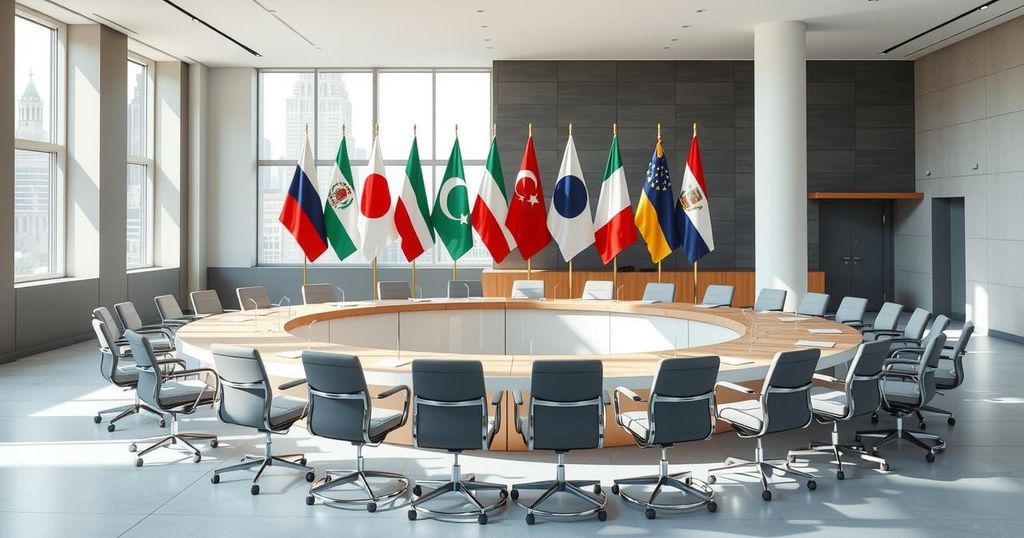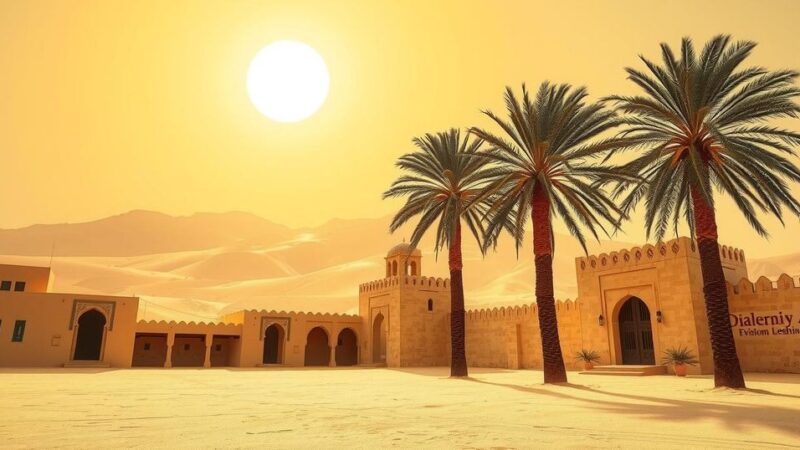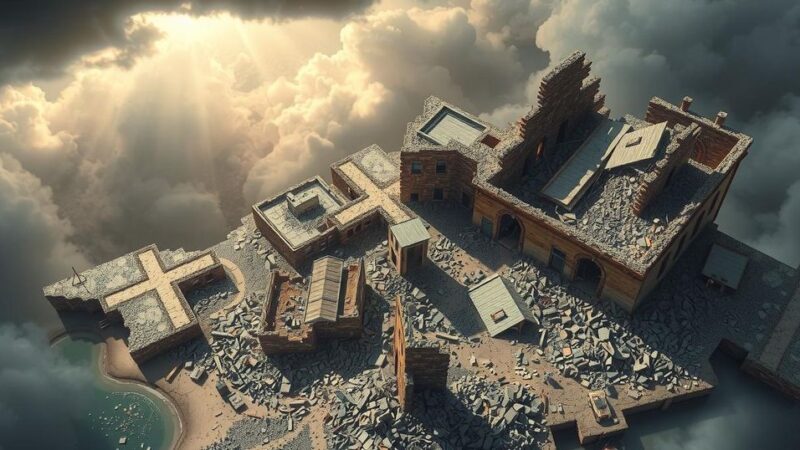Felix Tshisekedi and Paul Kagame met in Qatar to discuss the security crisis in eastern DRC, with a focus on the M23 rebellion. The meeting yielded a commitment to ceasefire and direct political dialogue, despite accusations by Kinshasa against Rwanda of supporting the M23. Sanctions on Rwanda and the humanitarian situation within the DRC continue to complicate efforts for peace.
On Tuesday, Felix Tshisekedi and Paul Kagame convened in Qatar for urgent discussions regarding the escalating security concerns in eastern Democratic Republic of the Congo (DRC). This meeting was facilitated by the emir of Qatar, indicating a significant diplomatic effort to address the ongoing crisis that has seen the M23 rebellion gain ground in South and North Kivu provinces. While Kinshasa accuses Rwanda of backing the M23, Kigali has consistently denied these claims, despite supporting evidence from multiple United Nations reports.
The dialogue, which lasted approximately 45 minutes, was characterized as “cordial.” Sources from RFI’s Africa service noted the constructive atmosphere largely due to the emir’s involvement. Previous attempts to arrange meetings between the two leaders had been unsuccessful, including one that was set for January 2023 but was ultimately canceled.
According to political analyst Tresor Kibangula, international sanctions are exerting pressure on President Kagame, prompting a shift in Tshisekedi’s stance toward negotiating with the M23. This change is attributed to the altered power dynamics following the armed group’s capture of key cities such as Goma and Bukavu.
In light of their discussions, both presidents recognized the necessity for an immediate ceasefire, particularly in the wake of failed peace talks in Angola. A source close to the Congolese presidency remarked that the significance of the meeting was downplayed until after it concluded.
Statements issued post-meeting confirmed that both leaders reiterated their commitment to an unconditional ceasefire as agreed at a recent African summit. The successful dialogue was reported to boost confidence in achieving a stable future in the region, promoting direct political dialogue to address the underlying issues fueling the conflict.
Furthermore, the Rwandan presidency highlighted President Kagame’s belief that cooperative efforts among all parties could expedite peace processes. A statement from Kagame’s spokesperson affirmed an immediate ceasefire agreement, with implementation details to be finalized in the upcoming days.
Earlier, peace talks in Angola were canceled after the M23 announced its withdrawal, alleging international entities were obstructing negotiations, particularly following sanctions imposed by the European Union. These sanctions targeted several figures within the group and military commanders whom the EU holds accountable for fomenting unrest.
The M23 maintains to defend the interests of Congolese Tutsis and has reportedly seized pivotal cities in a rapid offensive that has resulted in over 7,000 fatalities. Although the UN has raised alarms regarding Rwanda’s alleged support for the M23, Rwanda itself claims to be responding to threats posed by the FDLR group, which has historical ties to the 1994 genocide.
This recent engagement between the DRC and Rwanda marks the first high-level talks since 2013, shedding light on the political complexities surrounding the M23 conflict and the regional implications for stability.
The meeting between Felix Tshisekedi and Paul Kagame signals a noteworthy diplomatic effort to address the humanitarian and security crisis in eastern DRC. Both leaders expressed a renewed commitment to achieving a ceasefire and engaging in productive negotiations, acknowledging the necessity of direct dialogue to resolve underlying conflicts. The evolving dynamics, influenced by international pressures and the precarious situation on the ground, underscore the urgency of collaborative efforts to restore peace in the region and curtail the influence of armed groups like the M23.
Original Source: www.rfi.fr






